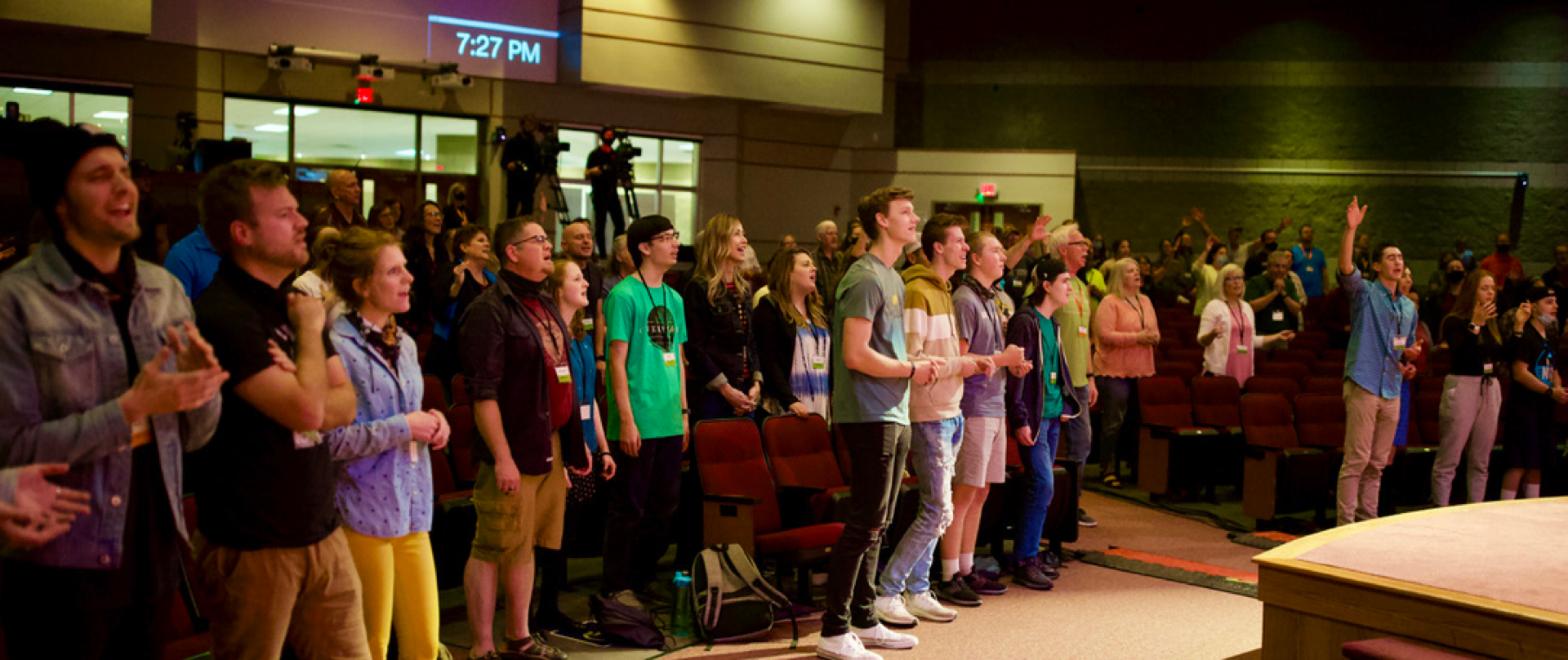
The Essential Role of Mentorship in Worship Leadership
Feeling overwhelmed and alone in your role as a worship leader? You're not alone. In a recent episode of "The Table" podcast, host Jason Squires sat down with Andrea Olson, the founder of Overflow Worship, to discuss the unique challenges worship leaders face and the crucial role mentorship plays in navigating these challenges. Andrea shares her journey, insights, and practical advice for worship leaders seeking to grow and lead effectively. If you haven’t listened to the episode yet, you can check it out below!
The Power of Mentorship for Worship Leaders
Why Mentorship Matters
Starting out as a worship leader can feel like being thrown into the deep end of the pool. Without someone to guide you, it's easy to feel lost and overwhelmed. Andrea Olson knows this all too well. She recalls her early days of leading worship without any mentorship, which fueled her passion for helping others. Mentorship isn't just a nice-to-have; it's essential. It provides the support and guidance that helps leaders navigate their roles with confidence. Imagine having someone to walk hand-in-hand with you, offering advice, encouragement, and a sense of direction. That’s the power of mentorship.
Support and Guidance
Andrea emphasizes that having a mentor can make all the difference. A mentor offers a fresh perspective, seasoned advice, and the reassurance that you’re not alone in your journey. It’s about building a relationship where both parties grow and learn from each other. With a mentor, the daunting task of leading worship becomes a shared journey, filled with support and encouragement.
Balancing Creativity and Administration
Dual Roles
One of the unique challenges worship leaders face is balancing their creative and administrative responsibilities. It's like being asked to switch between two completely different modes of thinking. Andrea, who humorously calls herself a “nerd” for organization despite her deeply creative background, understands this struggle well. She points out that to be effective, worship leaders need to develop both sets of skills.
Growing in Both Areas
Embrace both aspects of your role. If you’re naturally creative but struggle with organization, seek out tools and systems that can help streamline your administrative tasks. For instance, project management software can be a game-changer. It’s all about finding the right balance and continually growing in areas where you're less comfortable. Remember, being organized doesn’t stifle creativity—it supports it.
Establishing Effective Systems and Processes

Importance of Organization
Having effective systems and processes in place is crucial for managing a worship team. Andrea shares her experience of creating these systems from scratch, which helped her run more efficient rehearsals and services. Think of these systems as the backbone of your operations—they keep everything running smoothly and allow your team to thrive.
Tools for Success
Andrea highlights the use of project management software like AirTable to keep everything organized. Such tools can help you manage schedules, track progress, and ensure that nothing falls through the cracks. By establishing clear processes, you create a structured environment where your team knows what to expect and can focus on what they do best.
Empowering Through Delegation

The Art of Delegation
Delegation isn’t just about offloading tasks you don't enjoy; it’s about empowering others to excel in their strengths. Andrea discusses the importance of identifying your team members’ gifts and entrusting them with responsibilities that align with their skills. This approach not only lightens your load but also helps your team members grow and feel valued.
Building Trust
Effective delegation builds a culture of trust and empowerment. By allowing team members to take ownership of specific areas, you foster a sense of responsibility and pride in their work. Andrea emphasizes that good leaders know how to delegate effectively, creating an environment where everyone feels invested in the success of the team.
Prioritizing Personal Spiritual Development

Spiritual Health
Personal spiritual development is the cornerstone of effective leadership. Andrea stresses that worship leaders must invest in their own spiritual health to lead others well. It’s like the oxygen mask analogy—you need to put on your own mask before helping others. Your spiritual health directly impacts your ability to mentor and lead.
Practical Steps
Andrea shares practical steps for maintaining spiritual health, such as regular Bible reading, prayer, and personal worship. These practices keep you spiritually nourished and ready to pour into others. Make time for these activities amidst your busy schedule. Your spiritual well-being is crucial for sustaining long-term ministry.
Navigating Role Transitions in Worship Leadership

Handling Transitions
Transitioning to a new role or a different church can be challenging. Andrea talks about the adjustments worship leaders have to make when moving from one context to another, whether it’s from a large church to a small one or vice versa. These transitions require flexibility and a willingness to learn.
Adapting to New Environments
Understand the culture of your new environment, be flexible, and rely on your foundational skills to ease the transition. Andrea offers practical tips like observing before making changes and seeking input from your new team. Smooth transitions are all about understanding and adapting to your new context.
Building a Supportive Community

Community Connection
Creating a supportive community is crucial for worship leaders. Andrea discusses how Overflow Worship provides resources and events that foster connection among worship leaders. A strong community provides the encouragement and accountability needed to sustain long-term ministry.
Encouragement and Accountability
Building a sense of community within your team and connecting with other leaders can significantly impact your ministry. A supportive network offers a place to share struggles, celebrate successes, and gain valuable insights. Community is not just a nice addition—it’s a vital part of thriving in worship leadership.
Mentorship, personal growth, and community are vital components of successful worship leadership. Andrea Olson’s insights remind us that we’re not meant to navigate this journey alone. By seeking mentorship, investing in our spiritual health, and building supportive communities, we can lead more effectively and create powerful worship experiences. If you haven’t already, make sure to listen to the full podcast episode for more in-depth discussion and practical advice.
Share your thoughts and experiences in the comments below. How has mentorship impacted your journey as a worship leader? Connect with Overflow Worship for more resources and support. Let’s grow together and create worship experiences that truly resonate.











